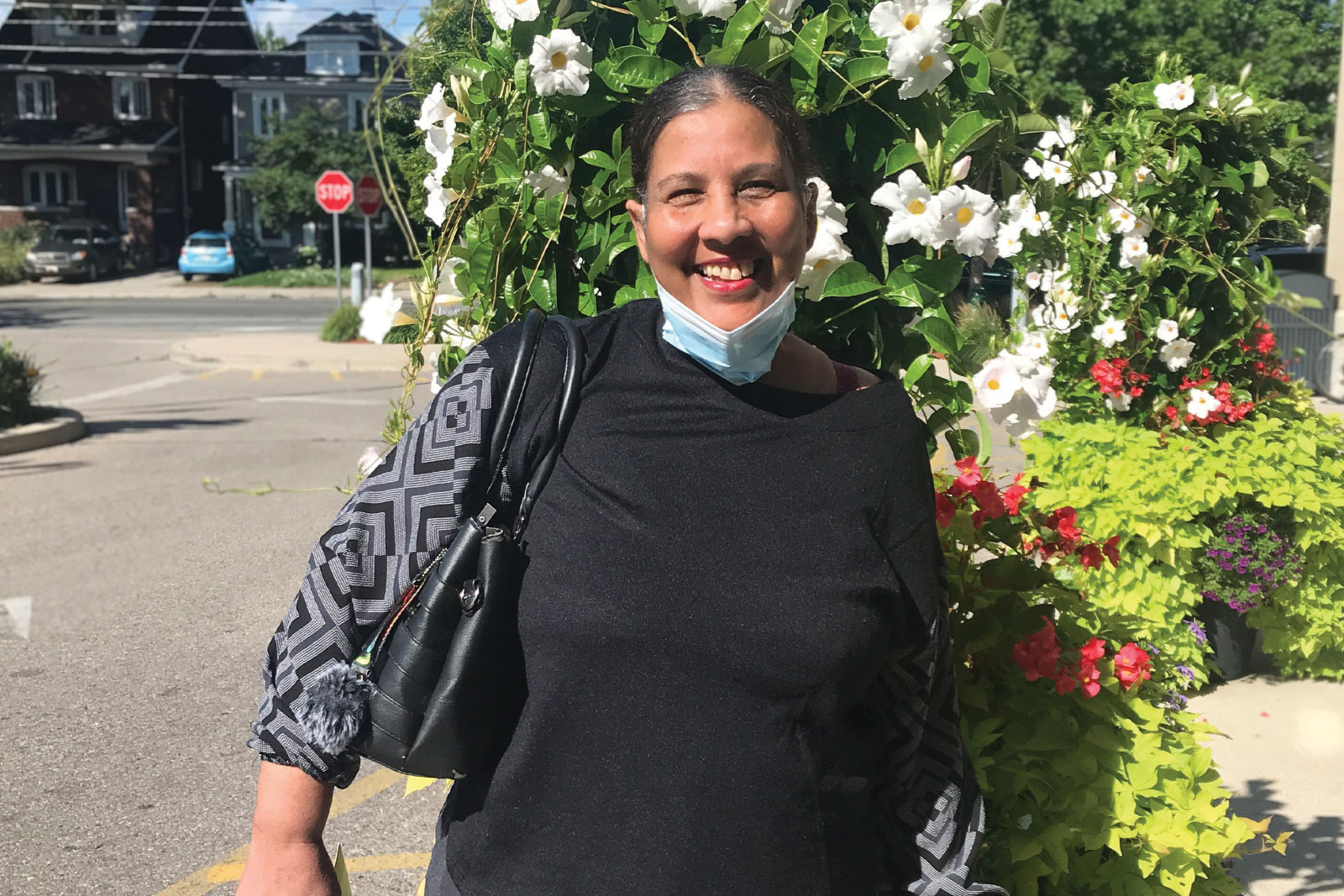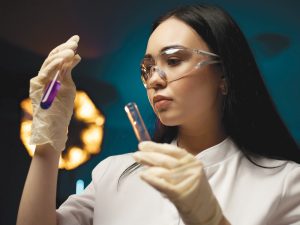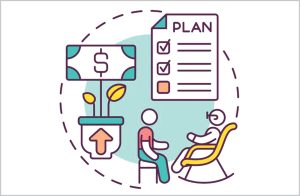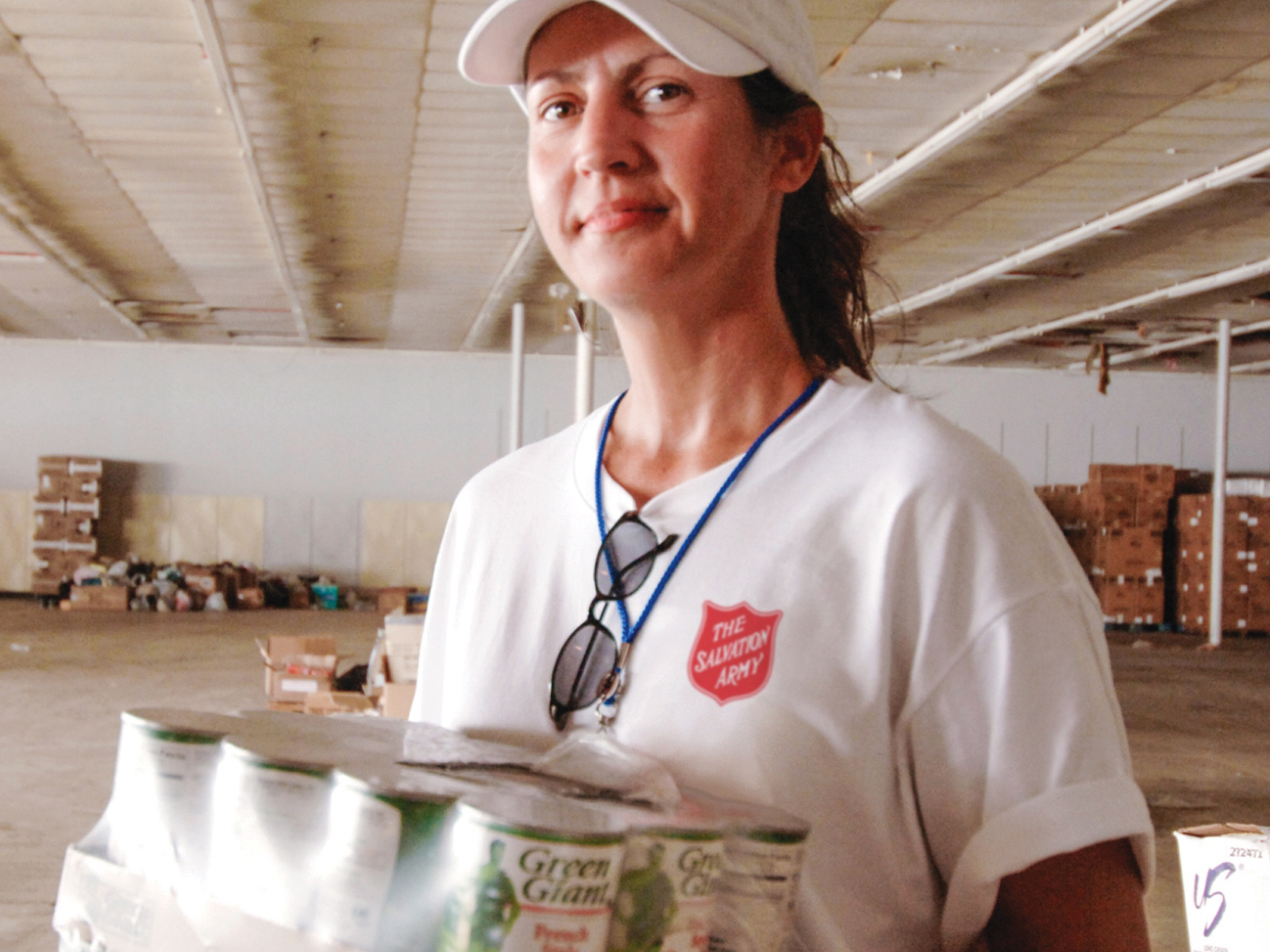By Michael Oreskovich
Bibi overcame a 44-day battle with COVID-19 before being admitted to Runnymede Healthcare Centre for rehabilitation in July 2020. During her stay in acute care, Bibi suffered severe respiratory failure and was put on a ventilator in an intensive care unit (ICU). Extreme measures were needed to help her survive, including support from an extracorporeal membrane oxygenation (ECMO) machine that oxygenated her blood outside her body.
The 58-year-old can’t remember much about what happened in the ICU. “I had tubes all around me, and I couldn’t talk, or even eat or drink,” Bibi said. “It was horrible. My family told me later that the doctors didn’t know if I would make it.”
Patients who are recovering from the long-term impact of COVID-19 face many obstacles, even when they are finally free from the virus. In addition to the stress they’ve been through, they’ve been weakened by extended time in bed. They are sometimes left with the effects of acute respiratory distress syndrome (ARDS), which compromises breathing capacity and makes it extremely challenging to regain strength, mobility and independence.
Back to basics
When she was admitted to Runnymede, Bibi was unable to get out of bed or walk without help. The respiratory therapists played a vital role in helping her, and other patients like her, to achieve their rehabilitation goals. “It’s common for patients who have gone through COVID-19 to face additional obstacles when compared to other patients in our rehab programs,” said Geeta Grewal, director of patient care at Runnymede. “Their capacity to breathe effectively is often much lower, which results in an elevated heart rate, shortness of breath and a tendency to become exhausted very easily. All of this makes it challenging for these patients to have a rapid recovery.”
Low intensity rehab
Bibi entered Runnymede’s slow stream rehabilitation program, where low-intensity rehab is delivered to patients who can’t cope with a more active pace. The hospital’s physiotherapists (PTs) and occupational therapists (OTs) created a patient-centred plan that included weight training to build strength, balance and flexibility. The plan also helped Bibi learn to adapt to everyday tasks like washing, dressing, and taking stairs to restore her independence mobility and quality of life.
Even so, Bibi’s treatment plan was challenging to execute given her low tolerance for exertion without extreme fatigue. Therefore, the involvement of the hospital’s staff respiratory therapist (RT) was essential in ensuring her therapy would succeed. “Our RT supports therapy by being at the patient’s side to monitor their heart rate and oxygen saturation while PTs and OTs provide therapy,” explained Grewal. “The RT can administer supplemental oxygen as it’s needed so the patient can get the maximum benefit from their sessions before they become too tired to safely continue.”
“I’m the kind of person who always wants to get around and move and do things, so when this happened to me, I was devastated.”
Runnymede’s RT also supported Bibi by educating her about breathing strategies that conserve oxygen. For example, Bibi learned how to break up activities so they are shorter and require less exertion. She was also taught how to perform diaphragmatic breathing, which helped strengthen her respiratory muscles. After a week and a half, the plan began to work and Bibi’s endurance improved to the point that she was able to complete her exercises without needing supplemental oxygen. Around the same time, she became less reliant on her walker and could walk independently for short distances.
70 days later
On August 5, 2020—three weeks after her admission to Runnymede, and 70 days after her initial hospitalization for COVID-19—Bibi was discharged home. Her recovery journey will continue while at home, where she will practice the breathing exercises she was taught. Bibi is also committed to keeping as active as she can in order to maintain and build on her strength. On the day of her discharge, as she was saying goodbye, she said, “I’m the kind of person who always wants to get around and move and do things, so when this happened to me, I was devastated. I wanted to get back to my family and my job. The Runnymede team helped me get there—I’m so happy to be returning home again.”
Michael Oreskovich is a communications specialist at Runnymede Healthcare Centre.














